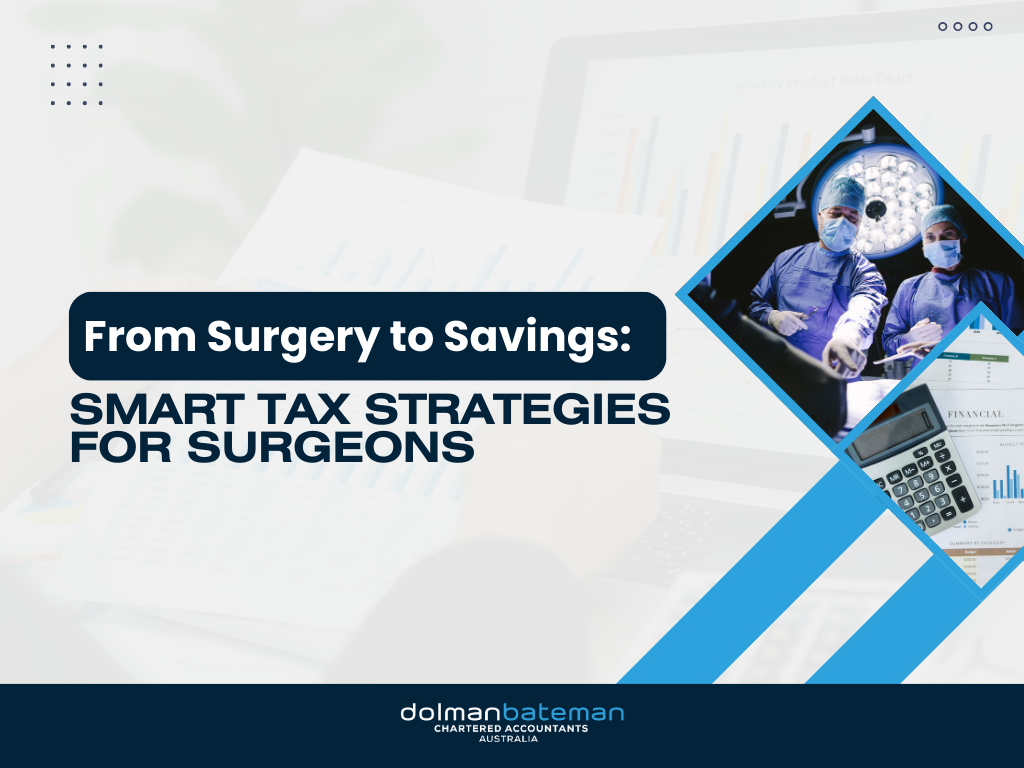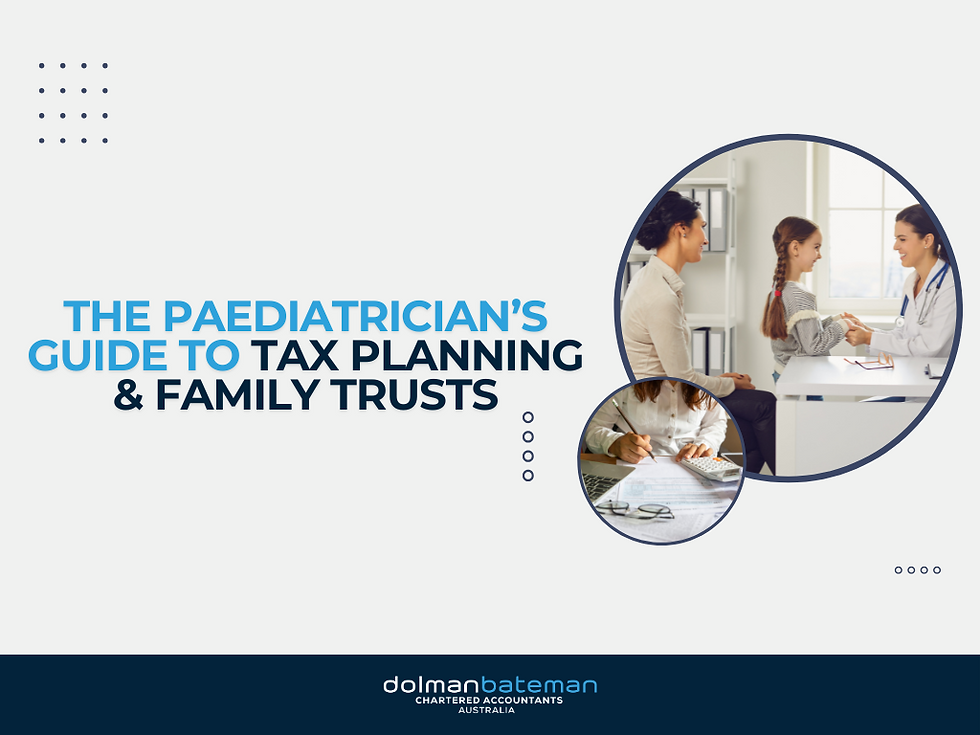From Surgery to Savings: Smart Tax Strategies for Surgeons
- Arnold Shields

- Mar 27, 2025
- 3 min read
Updated: Nov 26, 2025

Surgeons and Tax: Unique Challenges and Opportunities
Surgeons in Australia operate in one of the most financially complex and high-stakes professions. With substantial income, regulatory scrutiny from the ATO, and industry-specific deductions, proactive tax planning isn’t optional, it’s essential.
What Every Surgeon in Australia Should Know
From allowable deductions to structuring income and preparing for retirement, this guide breaks down how surgeons can legally minimise tax while securing long-term financial health.
1. Deductible Work-Related Expenses for Surgeons
Surgeons may be able to claim:
Surgical tools and protective gear used exclusively for work
Professional development like conferences, RACS training, and medical seminars
Travel between unrelated workplaces or to CPD events
Reminder: Home-to-work travel is not deductible. Keep detailed logs and receipts for all deductible expenses.
2. Claiming Insurance Premiums
Income Protection Insurance - Deductible if it covers loss of income
Medical Indemnity Insurance - Fully deductible
Premiums that include life, trauma or TPD are not fully deductible. Only the income protection component can be claimed.
3. Home Office & Telehealth Deductions
Many surgeons now work partially from home. You may be eligible to claim:
A share of home internet and electricity
Depreciation on work-related equipment
Work-related phone and data usage
Use either:
Fixed rate (2025): $0.67/hour (covers electricity, phone, internet)
Actual cost method: With accurate logs and receipts
4. Choosing the Right Structure
Your business structure directly impacts your tax position:
Sole Trader: Easy to set up, taxed at individual marginal rates
Partnership: Common in shared practices; requires a written agreement
Company: Potential for 25% tax rate (base rate entity rules apply)
Service Entity/Medical Trust: Used for income splitting and asset protection
ATO Warning: Income from personal exertion must be reported personally. Improper income splitting through trusts will attract scrutiny. PSI (Personal Services Income) rules may also apply.
5. Superannuation Strategies (2025)
Super remains one of the most effective tax shelters for high-income earners:
Concessional Cap: $30,000/year (taxed at 15%)
Carry-forward: Use unused cap amounts from prior 5 years (if super < $500K)
Non-Concessional Cap: $120,000/year, or $360,000 under bring-forward
Division 293 Tax: If your income exceeds $250K, an additional 15% tax applies to concessional contributions.
6. Self-Managed Super Funds (SMSFs)
SMSFs provide greater control but come with compliance obligations:
Investment flexibility
Tailored estate planning
Retirement tax benefits
Must meet ATO compliance rules including trustee duties, audits, and annual returns.
7. Prepaying Expenses Before 30 June
Get ahead of tax time with strategic prepayments:
Memberships (RACS, AMA)
Income protection premiums
Interest on deductible investment loans
Smart EOFY tactic to reduce taxable income at high marginal rates
8. Investing with Tax Efficiency
Negatively geared property – May offer deductions
Franking credits – Offset tax via fully franked dividends
Practice investments – Depreciate medical equipment or claim outright
PSI rules may limit your ability to deduct investment losses.
Why Surgeons Need Tailored Tax Planning
Surgeons face higher audit risk, complex financial needs, and unique tax opportunities. Strategic planning helps you:
Remain compliant
Maximise allowable deductions
Protect wealth and prepare for retirement
Partner with Dolman Bateman
We specialise in medical professional tax strategies. Whether you're operating solo, within a partnership, or across multiple hospitals, we tailor your tax plan to fit your personal and professional goals.
📞 Need expert tax advice? Let’s talk.
Disclaimer:
The information provided in this article is general in nature and does not constitute personal financial, legal or tax advice. All content relates to the current financial year only. Future changes to tax laws, thresholds or administrative requirements may affect the accuracy or relevance of this information, so you should always confirm that the guidance remains current. While every effort has been made to ensure accuracy at the time of publication, Dolman Bateman accepts no responsibility or liability for any loss or damage arising from reliance on this information. You should seek professional advice tailored to your circumstances before making any financial or tax decision.



